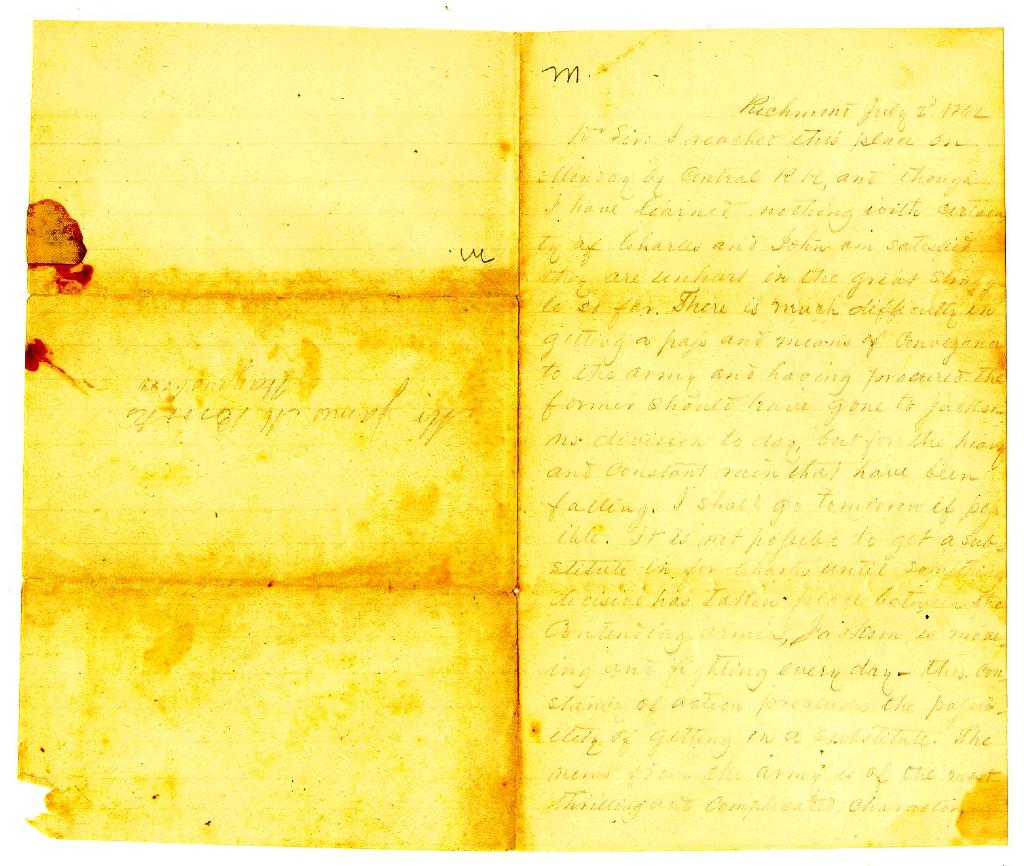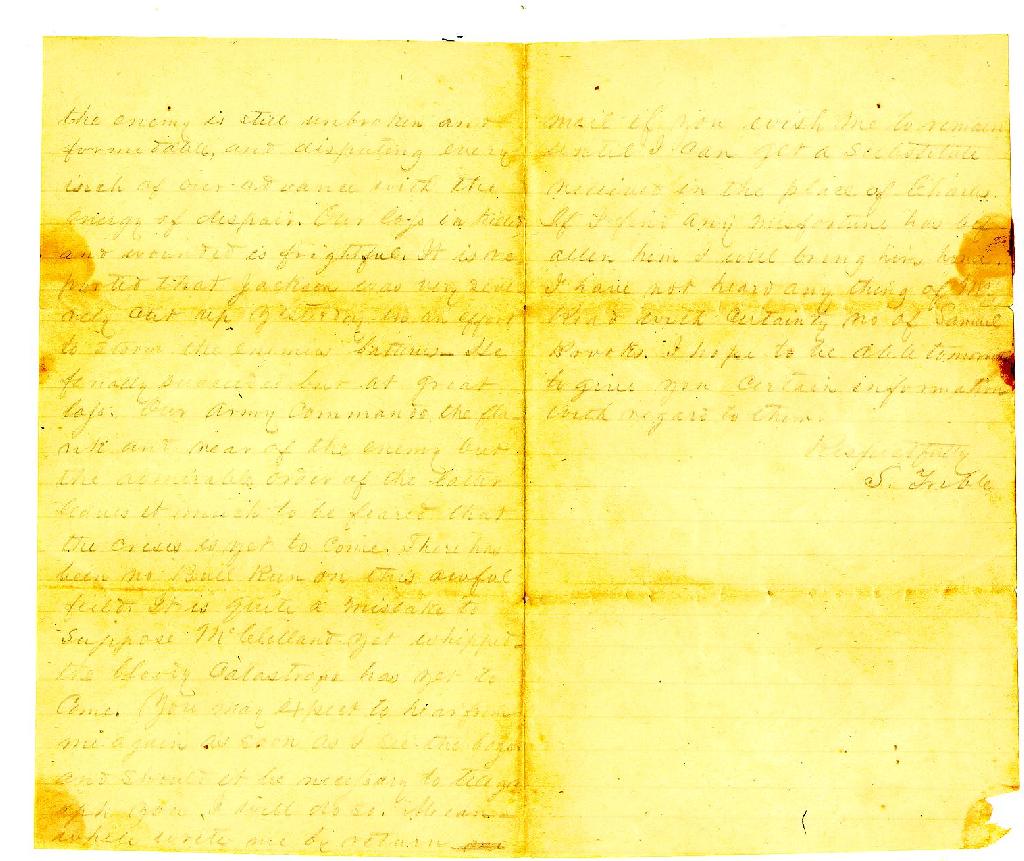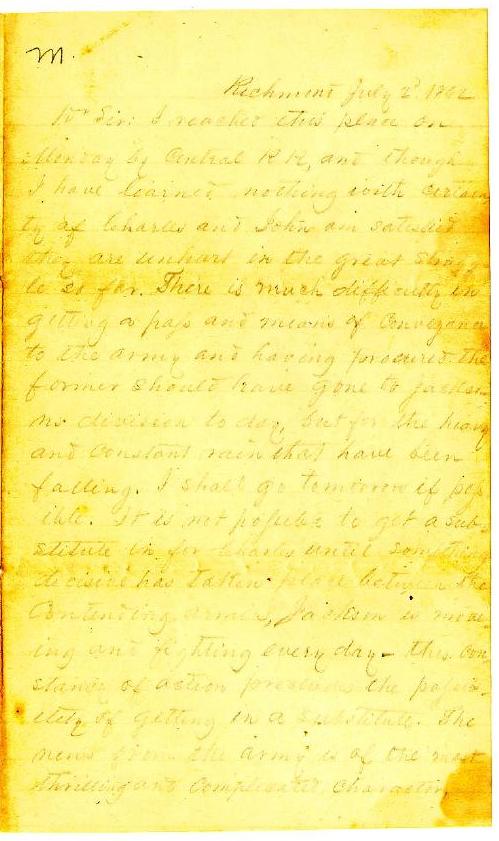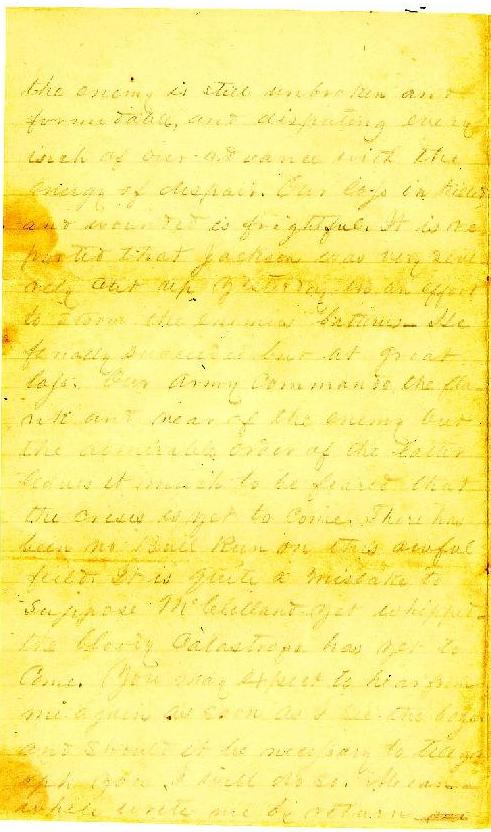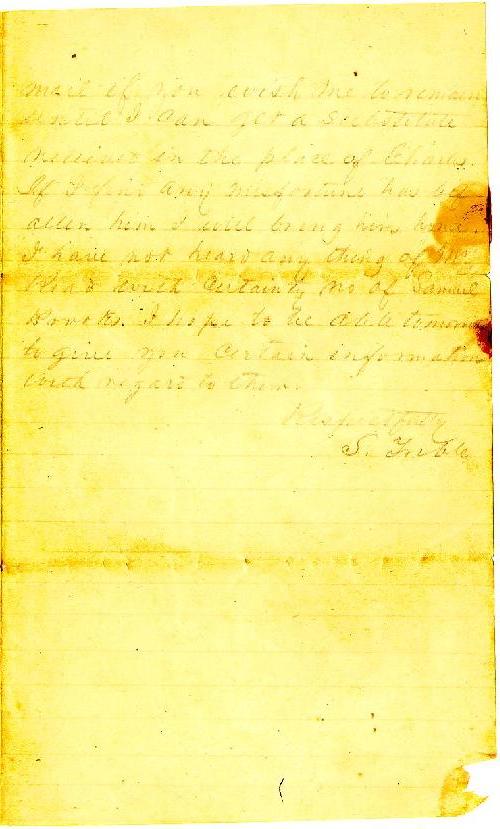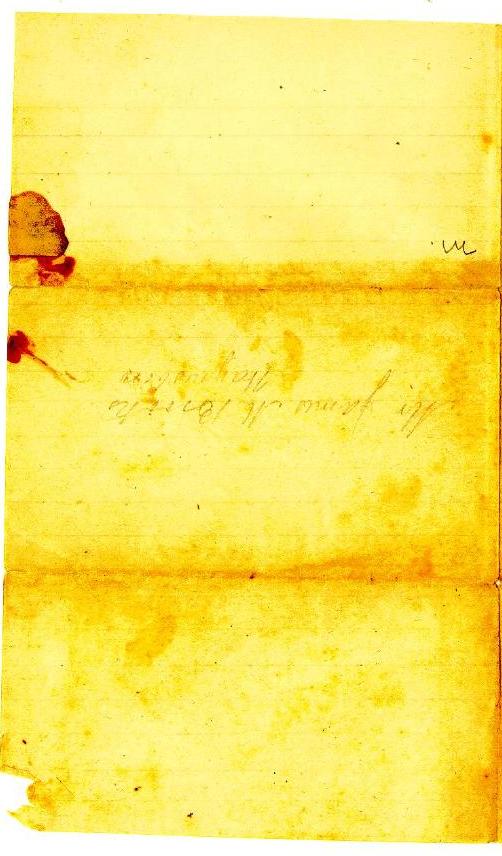Letter to James Brooks
Summary
ALS .pps July 2, 1862 Schyler Trible to his neighbor James Brooks, July 2, 1862 Schyler Trible calls the battles of the Seven Days' Campaign "thrilling and complicated," and explains that the resulting confusion has prevented him from learning about the welfare of James Brooks' sons.
July 2d 1862
Richmond
I reached this place on
Monday by Central RR, and though
I have learned nothing with certain
ty of Charles and John am satisfied
they are unhurt in the great strugg
le so far [1]. There is much difficulty in
getting a pass and means of conveyance
to the army and having procured the
former should have gone to Jackso
ns division to day, but for the heavy
and constant rain that have been
falling. I shall go tomorrow if poss
ible. It is not possible to get a sub
stitute in for Charles [2] until something
decisive has taken place betweeen the
contending armies, Jackson is [unclear: move ing] and fighting every day— this con
stancy of action precludes the possib
ility of getting in a substitute. The
news from the army is of the most
thrilling and complicated character;
the enemy is still unbroken and
formidable, and disputing every
inch of our advance with the
energy of despair. Our loss in killed
and wounded is frightful.[3] It is re
ported that Jackson was very seve
rely cut up yesterday in an effort
to storm the enemies batteries. He
finally succeeded but at great
loss. Our army commands the fla
nk and rear of the enemy but
the admirable order of the latter
leaves it much to be feared that
the crisis is yet to come. There has
been no Bull Run on this awful
field. It is quite a mistake to
suppose McClelland yet whipped,
the bloody catastrophe has yet to
come.[4] You may expect to hear from
me again as soon as I see the boys,
and should it be necessary to telegr
aph you I will do so. Mean
while write me by return m mail if you wish me to remain
until I can get a substitute
received in the place of Charles.
If I find any misfortune has bef
allen him I will bring him home.
I have not heard anything of Mr.
Read with certainty no of Samuel
Brooks. I hope to be able tomorrow
to give you certain information
with regards to them.
Respectfully,
Footnotes
- 1
Apparently the family patriarch James Brooks asked his neighbor Schyler Trible to travel to Richmond, the capital of the Confederacy. Trible's mission was to find out about the welfare of Charles Brooks and "John," who appears to be Charles' cousin John D. Brooks (see William Brooks' letter of July 8, 1861). Trible arrived in Richmond on Monday, June 30, the fifth day of the Seven Days Battle, a series of battles around Richmond between Union General McClellan's army and Confederate troops under the command of Lee and Jackson Because the battles were going on around Richmond when Trible was writing, he was understandably concerned about the welfare of John and Charles Brooks, but unable to discover much about them in the confusion (McPherson, 70-73).
- 2
The First Conscription Act allowed a conscripted (drafted) man to hire a substitute to serve his term. This provision produced much division and tension between the poor and the wealthy. Often, a substitute would desert a day after appearing in camp, then agree to substitute for someone else (Current, vol. 1, 396-99).
- 3
During the Seven Days Battle, the Confederates lost 20,141 men, while the Federal army lost 15,489 (McPherson, 72). The Fourth Virginia suffered losses of 8 killed and 28 wounded (Robertson, 4th Virginia Infantry, 16).
- 4
As a result of the Seven Days campaign, the Confederates prevented McClellan from capturing Richmond, but McClellan succeeded in moving his base of operations from the York river to the James (Wallace, 35).
- 5
According to the 1860 Census of Augusta County, Schyler Trible, who was thirty-one in 1860, lived with the farmer Samuel Steele on land close to the Brooks family farm.
